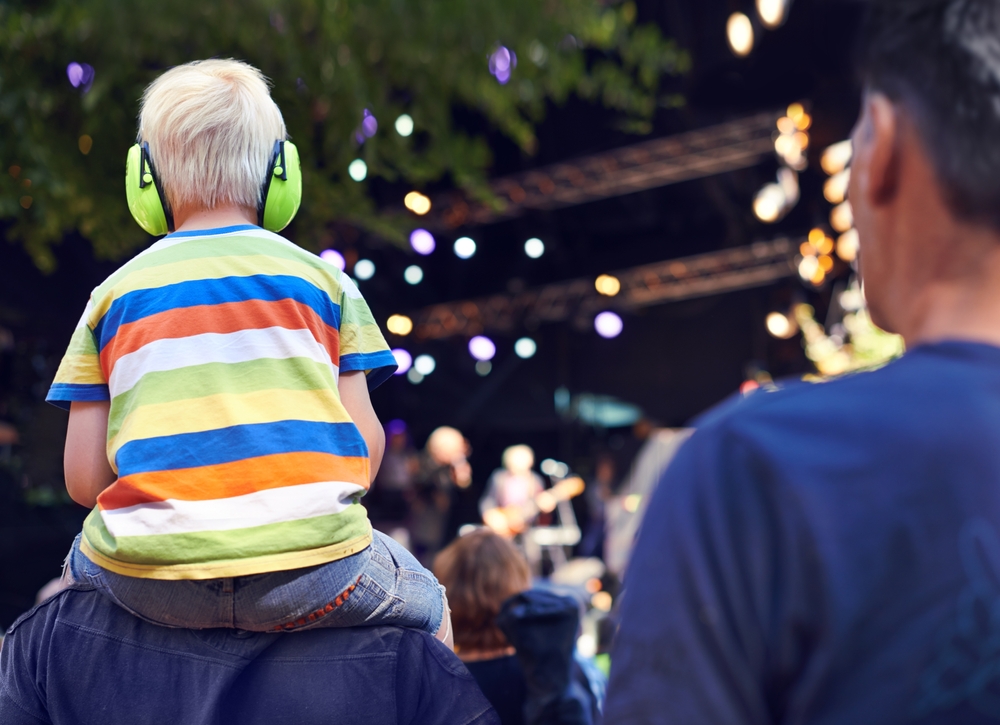
Most people think that as they get older hearing loss will be inevitable. In truth, damage from recurring exposure to loud noise is also a major factor. Every exposure to loud sounds, whether at a concert, mowing the lawn, or through loud earbuds, adds up over time, resulting in permanent hearing loss. Alarmingly, this issue is not limited to older adults; even children are now showing indications of preventable hearing damage.
Around 34 million kids around the world are experiencing hearing loss, and up to 60% of these cases are preventable. When we consider adults, the numbers are even more dramatic, revealing a widespread problem that demands attention.
Hearing loss’s current contributing factors
To take on the problem of hearing loss, it’s important to understand why it has become so commonplace in today’s world. Several factors contribute to this problem, each interconnected and increasing the danger of hearing damage:
- Social Environments: There’s usually an excessive amount of noise in current social settings like restaurants and bars. Many social establishments have adopted the strategy of raising their volume levels to give the illusion of increased success. Cumulative hearing damage can be the result of the background noise in these places, even if there is no live music.
- Urbanization and Population Density: The world’s cities are more heavily populated than ever before. With more people living in close quarters, the volume levels in metropolitan environments have increased substantially. From traffic to construction, urban noise is a constant assault on our ears, contributing to the expanding occurrence of hearing loss.
- Technological Advancements: Perhaps the most significant factor in the increase of hearing loss is the popular use of personal audio devices. Earbuds and headphones have made it more convenient than ever to listen to music, podcasts, and videos. But unfortunately, the tendency to crank the volume up, in conjunction with the closeness of the device to your ears can cause increasing damage to your ears. The damage is often subtle, building up over time until it becomes noticeable and permanent.
From raging waterfalls to clattering steam engines, humans have always had to cope with loud noises, but in the contemporary world, new difficulties have arisen. Today’s noise levels, combined with the accessibility of technology, create a perfect storm for hearing loss.
What are some proactive measures to prevent hearing loss?
Given that the majority of hearing loss cases are preventable, particularly in children, it’s perplexing that the issue remains so common. The key to prevention is all about personal responsibility and awareness. Preserve optimum hearing with the following strategies:
- Utilize Hearing Protection: It’s essential that you use ear protection if you’re going to be exposed to loud sounds like a lawnmower or a rock concert. Earplugs and earmuffs are readily available and can significantly reduce the risk of hearing damage. A significant difference can be made by taking this simple and frequently neglected step.
- Be Cautious of Moderate Noise Exposure: While the obvious danger to hearing is exposure to loud noise, moderate noise can also be a threat if you are exposed to it over long periods of time. City noise, for instance, might not seem harmful in small doses, but over prolonged periods, it can play a role in hearing loss. You’re only likely to take preventive steps if you recognize the cumulative nature of hearing loss.
- Track The Volume of Your Earbuds: Personal audio devices, including earbuds, are a convenient way to enjoy music and other audio content, but they present a considerable risk if used irresponsibly. If your device includes a noise limit setting, you can use it to safeguard your ears from damaging sound levels. Taking the time to program these settings can prevent long-term damage to your hearing.
- Implement Technology for Hearing Protection: You can monitor whether your environment is getting too loud by downloading an app that tracks outside volume. These tools are indispensable for raising awareness and making informed choices about your surroundings.
The impact of knowledge in hearing protection
For people working in noisy conditions such as factories or stadiums, safeguarding hearing can be more challenging. But the health of worker’s hearing is being protected by safety regulations that can be rather rigorous. Familiarizing yourself with these regulations and ensuring they are enforced can prevent occupational hearing loss.
You will ultimately be better able to protect your hearing by being more informed. This knowledge extends beyond understanding your environment; it also includes being aware of workplace policies and seeking professional assistance when necessary.
Consulting with us can supply useful insights into your current hearing health and offer personalized suggestions for safeguarding your hearing. Keep in mind that hearing loss doesn’t have to be an inevitable result. It is possible to preserve the health of your hearing and, with the appropriate precautions, continue to appreciate the sounds of your life for many more years.
